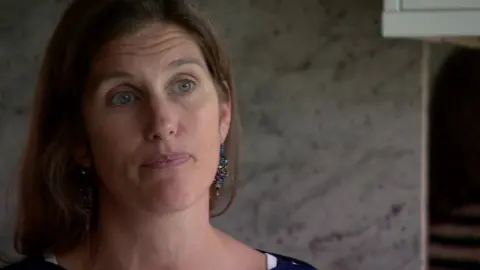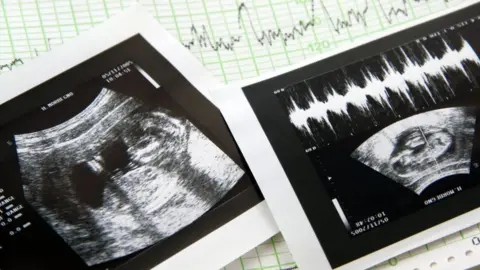Miscarriage discrimination: 'I was made redundant after I lost my baby'
 BBC
BBCA mother who suffered a miscarriage and then weeks later lost her job has called for a change in employment law.
Amy McKeown, 39, from Hampstead in north London, was off work for 10 weeks in 2006 after her 12-week scan found her baby had no heartbeat.
Three weeks later, her employer told her she was being made redundant.
Ms McKeown was not protected under maternity law from discrimination as the legal and medical worlds define pregnancy differently.
"From the moment the baby dies you are legally not pregnant whereas in the medical world you are considered pregnant until you go into labour and give birth to a baby - whether that baby is alive or dead," Ms McKeown said.
"There's a mismatch between what pregnancy is and that means there's a mismatch between what the end of a pregnancy is."
 Getty Images
Getty ImagesThe redundancy was part of "a strategic decision" as her firm exited an area of the business.
Following her redundancy, Ms McKeown, who had given birth to a healthy daughter before her miscarriage, was shocked to realise women were not protected under maternity law, which currently protects mothers against maternity discrimination for two weeks after the pregnancy ends.
"When women find themselves in these situations, they're often unwell - physically, mentally. In my situation you're grieving a loss of a child, it's at that point when women are at their most vulnerable that we need protections and that's when they're not there," she said.
'A burden'
Commenting on the potential for discrimination, Joeli Brearley, from Pregnant Then Screwed, an organisation that aims to tackle discrimination against mothers and promote the rights of women, said: "Employees will tell employers that they've had a miscarriage and then their employers of course realise they have an intention of having a baby.
"But because they've had a miscarriage they're not protected from discrimination.
"So from the point they mention they had a miscarriage, the employer starts to think they'll be a problem, a burden, and they start to find ways of pushing them out of their jobs."
A government commissioned report found one in nine women had been fired or made redundant when they returned to work after having a child or were treated so badly they felt forced out.
The government promised a new redundancy law in Thursday's Queen's Speech which, it said, would protect against maternity discrimination but Ms McKeown said she was unsure whether it would go far enough.
A spokesman for The Department for Business, Energy and Industrial Strategy, said: "Losing a baby through miscarriage is devastating.
"While it is illegal to disadvantage an employee that is off work because of pregnancy or a pregnancy related illness, we want to go further on this.
"Our Employment Bill, mentioned in the Queen's Speech, will extend protection from redundancy further - preventing pregnancy and maternity discrimination."
